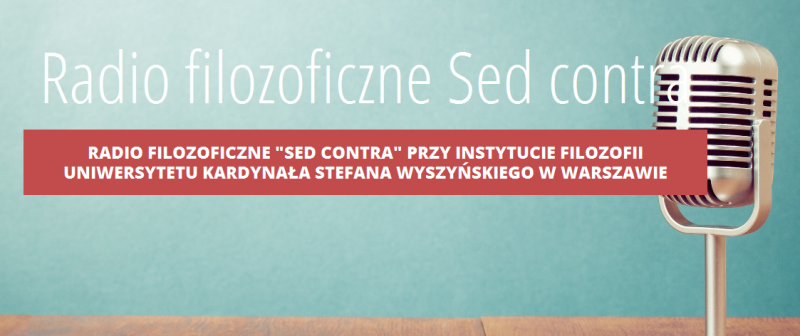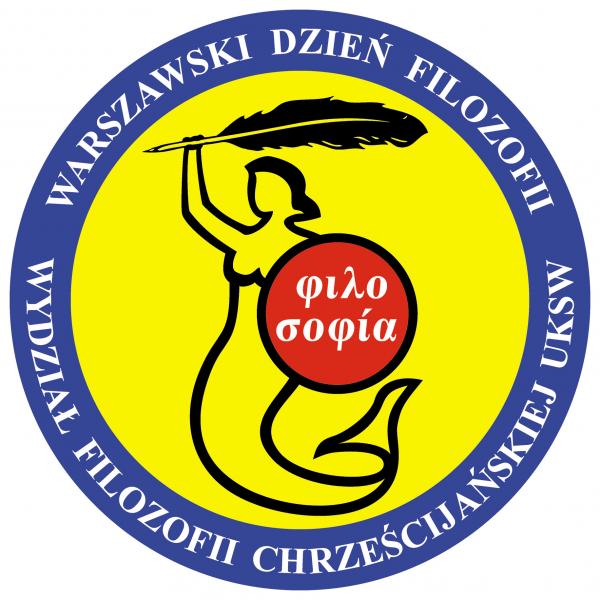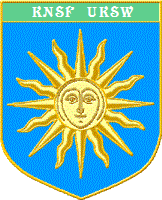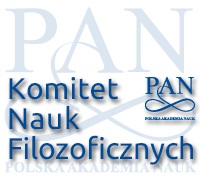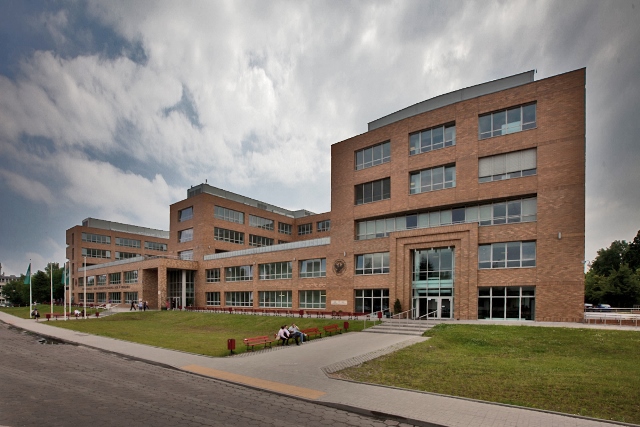UKSW | WFCh | Poczta | USOS | APD | E-learning | Biblioteka | KONTAKT |
Additional information
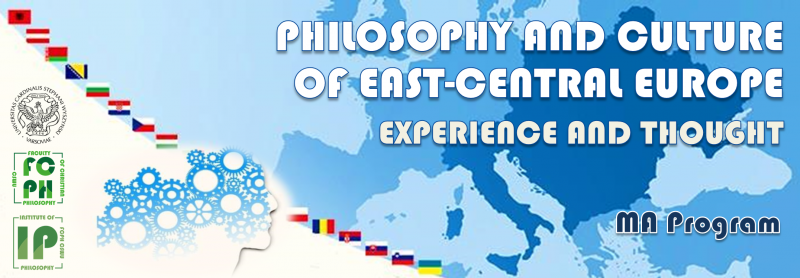
GENERAL
Specialization: Philosophy
Level of education: grade II (MA)
Form of study: full-time
Duration: 2 years (4 semesters)
Program’s principal subject: Philosophy and Culture of East-Central Europe - Experience and Thought
Unit responsible: Institute of Philosophy, Faculty of Christian Philosophy, Cardinal Stefan Wyszynski University in Warsaw (Poland)
Study fees (only for students outside European Union): 5.730 PLN (about 1.200 EUR) / per year of study (the possibility of exemption from fees in case of difficult material conditions)
Registration fees:
Candidates from EU – not applicable (only registration fee: 20 EUR / 20 USD / 85 PLN)
(There are possibilities to receive some types of student scholarships, see: http://www.filozofia.uksw.edu.pl/node/302)
DESCRIPTION
Knowledge
After graduation, the graduate has knowledge corresponding to standards of philosophical education at Master's degree level in the field of the following disciplines: history of philosophy, logic, ontology, epistemology, philosophy of science, philosophy of religion and ethics. In accordance with the program’s principal subject s/he has the opportunity to get to know particular traditions and conceptions as well as specific philosophical issues related to the experience and thought characteristic of Central and Eastern Europe. Using the knowledge and competences related to self-presentation techniques and media technology, combined with his/her advanced philosophical knowledge, the graduate of the program can cooperate as an expert, guest editor, commentator or moderator with the media and other cultural institutions (radio, television, newspapers, publishing companies, editorial boards of magazines, web portals, culture centers, etc.).
Skills
After completing the program the graduates have all necessary skills to undertake the analysis, presentation and interpretation of philosophical texts and other forms of cultural output, to understand and translate texts written in foreign languages, as well as to effectuate creative and critical thinking. They have the opportunity to acquire skills empowering them to carry out autonomous philosophical and ethical research, to come up with their own interpretation of events and to identify and analyze the main problems and challenges of contemporary times. They understand the specificity of the tradition, culture and philosophical thought characteristic of Central and Eastern Europe and can employ its legacy and achievements. They recognize the topicality, cultural importance and practicality of philosophical issues undertaken in the area of Central and Eastern Europe, revealing the present-day aspects of human experience and thought. The graduates obtain the ability to communicate effectively and think synthetically, which, in turn, allows them to take the challenges that involve finding efficient solutions to problems, creating plans of action and preparing comprehensive strategies. Thus, they may find employment in the field of broadly understood consulting. They can make valuable contributions to projects concerning matters related to bioethics, the creation of codes of ethics for institutions and companies, the development of coaching schemes for individual clients, as well as the enhancement of social skills and proper argumentation techniques.
Social competences
After completing the program the graduates are prepared to take jobs that require advanced planning skills and involve strategic, innovative and creative thinking, taking analytical and critical approach to problem solving as well as having sufficient knowledge of the traditions, experiences and thought characteristic of the region of Central and Eastern Europe. Such jobs may be offered by institutions concerned with preparing various strategies in specific social, political, religious areas, cultural institutions, the media, companies involved in advertising, marketing and promotion, governmental and non-governmental organizations, public administration, foundations and associations. Outstanding graduates are prepared to pursue the 3rd cycle (doctoral) studies and undertake research work in the field of philosophy.
WHAT IS EAST-CENTRAL EUROPE?
Central and Eastern Europe - the name used to identify the European countries with common cultural and historical roots. This is a bundle of two terms referring to this part of Europe - geographic (central) and political (Eastern). Central and Eastern Europe before World War II was also referred to as Intermarium (land between the seas). This term has been in use since the 80s, when the three intellectuals from the region: Milan Kundera, Czesław Milosz and István Bibó used it as a counterweight to the term Eastern Europe. Currently, the region includes: the states of the s. c. Visegrad Group (Poland, Czech Republic, Slovakia, Hungary); the Baltic states, which were once part of, or a dominion of Rzeczpospolita [ʐɛt͡ʂpɔsˈpɔlʲita] - a Polish word for “republic”, meaning the Polish-Lithuanian Commonwealth of 1569–1795 (Lithuania, Latvia, Estonia); the Ruthenian states disconnected from the Republic, which were once part of Rzeczpospolita (Belarus, Ukraine); the states which have emerged from the former Yugoslavia (Slovenia, Croatia, Bosnia and Herzegovina, Serbia, Montenegro, Macedonia); the other Balkan countries (Albania, Bulgaria, Moldova and Romania). Sometimes it is also said to include Austria and northern Italy.
ONE OF MANY REASONS TO STUDY WITH US
According to QS Best Student Cities 2016 Warsaw ranks second in the category of "affordability". It has been recognized as one of the most affordable cities in the world for foreign students.
Ranking QS Best Student Cities 2016 is a list of 75 leading cities in the world, which are selected by students from abroad. The two aspects taken into account in the category of "affordability" are the cost of living in the city and tuition fees. More information about the rankings: QS Best Student Cities 2016.
Informacja o ciasteczkach




